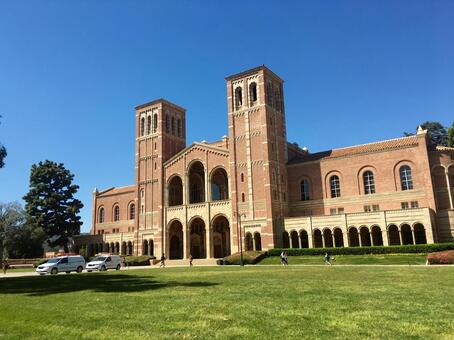2023.1.9
How to get a work visa in Japan

The first thing to do in order to work in Japan is to obtain a work visa.
There are several types of work visas, but the most common type of work visa is the 技術・人文知識・国際業務 (commonly known as the “Engineer Visa”).
The following is a list of visas for working in Japan.
外交ビザ
公用ビザ
教授ビザ
芸術ビザ
宗教ビザ
報道ビザ
高度専門職ビザ
経営・管理ビザ
法律・会計業務ビザ
医療ビザ
研究ビザ
教育ビザ
技術・人文知識・国際業務ビザ
企業内転勤ビザ
介護ビザ
興行ビザ
技能ビザ
特定技能ビザ
技能実習ビザ
With the engineer Visa, not only can you work in a wide variety of occupations, but it is also very advantageous when changing jobs.
This is because if you already have a work visa, there is no need for a company to obtain a new visa.
Because it is surprisingly difficult to obtain a visa, companies give priority in hiring foreign nationals with visas.
Even if you have excellent skills and speak Japanese well, most companies will give priority to foreigners with Engineer Visa.
Foreigners who do not have a work visa will be interviewed, but if the visa is not granted, the company will not be able to hire them, and it will be a waste of time.
Therefore, they are passive and the job offer rate is low.
Even if you meet the requirements for obtaining a visa, you may not be able to obtain a visa.
This article will explain in detail how to obtain a work visa 技術・人文知識・国際業務 , which many foreigners have, and what kind of work they can do.
What is 技術・人文知識・国際業務 ?

The Engineer Visa is to utilize the experience and language skills gained in your home country and demonstrate them in Japan.
If you have worked as an engineer in your home country, you can work as an engineer in Japan in the same way.
What kind of work can I do with that Visa?
You can work at any of these jobs.
Technology: mechanical design engineering, electronic design engineering, IT engineer, R&D research and development, and other technical jobs
Humanities knowledge: office-related jobs such as corporate planning, accounting, general affairs, human resources, etc.
International business: translation and interpretation services, language lecturers, overseas marketing, and other jobs that make use of language skills
With an Engineer Visa, you can do almost any kind of work.
Therefore, many foreigners who work in Japan have this visa.
Acquisition conditions for 技術・人文知識・国際業務

There are three conditions to obtain an Engineer visa.
I will explain one by one.
① Graduated from a four-year college or university.
If you have graduated from a university, you can apply for a visa.
If you came to Japan before graduating from a university in your country, you can apply for a visa if you have graduated from a four-year college or a vocational school in Japan.
【POINT】
Have a university degree from your home country
Graduated from a university or vocational school in Japan
②The content of your major at university must be related to your work.
It is not enough just to graduate from a university or vocational school.
It is necessary that the type of work performed in Japan and the content studied at a university or vocational school be consistent.
If the content of your school studies does not match the nature of the work you will be doing, you will not be able to obtain a work visa.
For example, let’s say a student decides to major in marketing at university.
Even if you are interested in working as an IT engineer in Japan, the chances of getting a visa are low.
This is because Engineer visa holders need to apply what they have learned in their home country to their work in Japan, and if they have studied marketing, they need to work in a job related to marketing in Japan.
When applying for a work visa, it may be necessary to submit documents certifying the nature of your major at university in order to confirm that the work you are applying for is related to the type of work you will be doing in Japan.
Once a job offer is made, the company will apply for a visa on behalf of the foreigner.
You will be asked to submit the necessary documents for the application, so please follow the instructions given by the company.
③ Do not engage in simple labor such as factory work
The Engineer Visa is not granted for simple work in factories.
This is because anyone can work in a factory, and an Engineer Visa requires that you apply what you have learned in your home country to your work in Japan.
If the main job is in place, and the sub job involves simple, routine work, it may be approved.
The following is a detailed explanation of working cases.
【In the case of mechanical design】
Suppose that a student majored in mechanical engineering at a university.
You can work in technical engineering jobs such as mechanical design, but you cannot work in simple, easy assembly in a factory.
This is because simple tasks such as assembly cannot make use of the design knowledge learned at university.
It is possible to be approved for a job that is mainly design work with a little simple work on the assembly line.
【In the case of a hotel receptionist】
Visas are available for front desk work at hotels and for jobs that require the use of language skills, such as serving guests from overseas in English.
If you are not working at the front desk, but are only working in a job that does not require you to use your language skills, such as carrying guest’s luggage to their rooms or housekeeping, you will not be granted a visa.
If you are mainly engaged in front desk work where you can use your language skills, and occasionally perform cleaning work, this is not a problem.
If you wish to obtain a visa on your own, you should consult a specialist such as an administrative scrivener.
There are cases in which the annual acquisition conditions may be renewed annually.
What if I did not graduate from a university?

You can apply for a visa in your home country or in Japan even if you have not graduated from a university or college.
If you have at least 10 years of work experience, you are eligible to apply for a visa.
For example, let’s say you have more than 10 years of work experience as an engineer in your home country.
You can apply for a visa to work as an engineer in Japan as well.
Summary

This section reviews the conditions for obtaining a work visa to work in Japan.
①Graduated from a university, and there is a match between the content of the major and the type of work one does in Japan.
②If you are looking for a job where you can use your experience in your home country or language skills.
③Those who have at least 10 years of work experience (if you have not graduated from a university).
If you are planning to come to Japan, please check about the work visa for Japan, or consult with a professional counselor.
The above information is for reference only.
There are cases where a visa may not be granted even if the above conditions are met.
Only the Immigration Bureau will know this.

